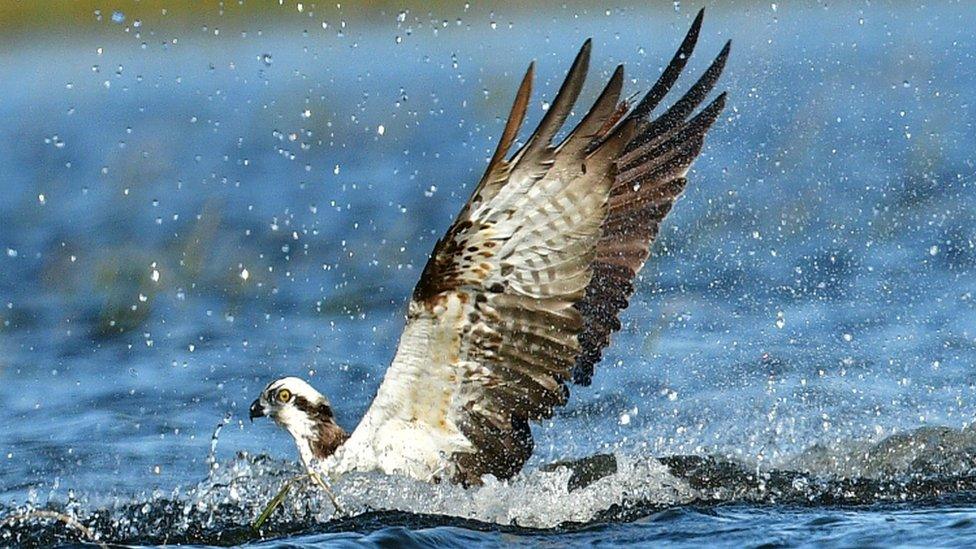Big Garden Birdwatch: Public poised for wildlife survey
- Published
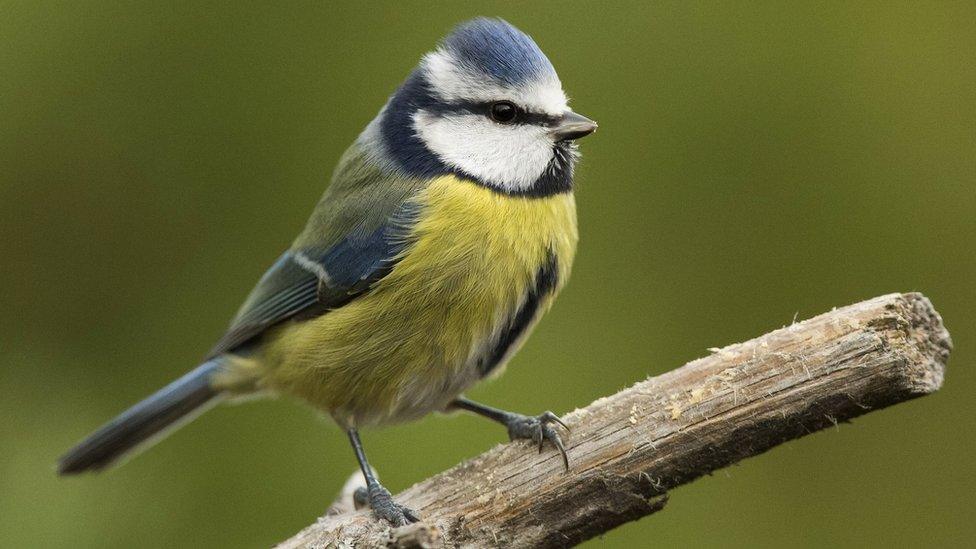
Blue tits were the third most spotted birds last year
Half a million people are expected to take to their gardens this weekend for the world's biggest garden wildlife survey.
The RSPB is asking people to look out for everything from blackbirds to coal tits as part of the Big Garden Birdwatch.
The charity believe this year's survey could reveal some of the impact of 2018's summer heatwave and the "Beast from the East" cold snap.
It takes place from Saturday to Monday.
As well as birds, people are being asked to spot, external badgers, foxes, grey squirrels, red squirrels, muntjac deer, roe deer, frogs and toads.
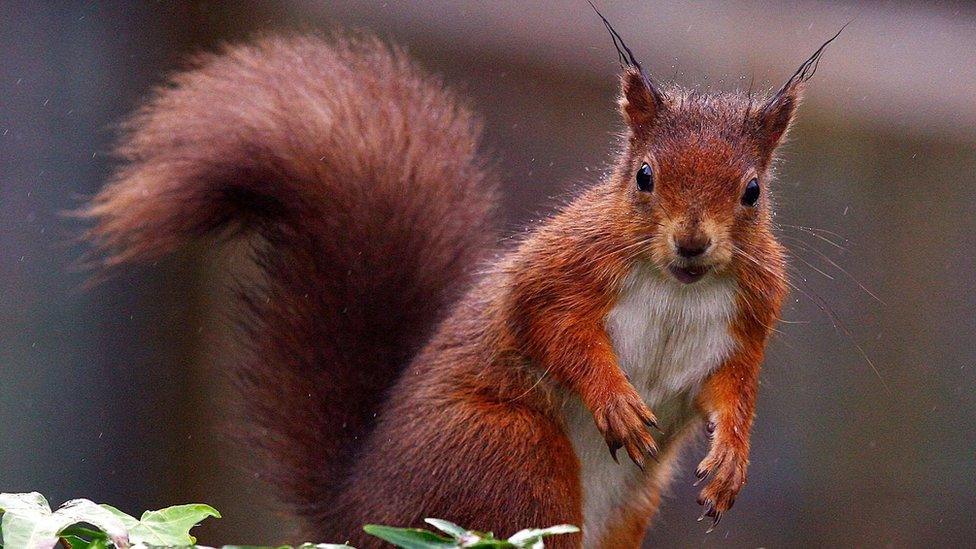
Allow X content?
This article contains content provided by X. We ask for your permission before anything is loaded, as they may be using cookies and other technologies. You may want to read X’s cookie policy, external and privacy policy, external before accepting. To view this content choose ‘accept and continue’.
Last year, the common house sparrow came out top as the most-spotted bird.
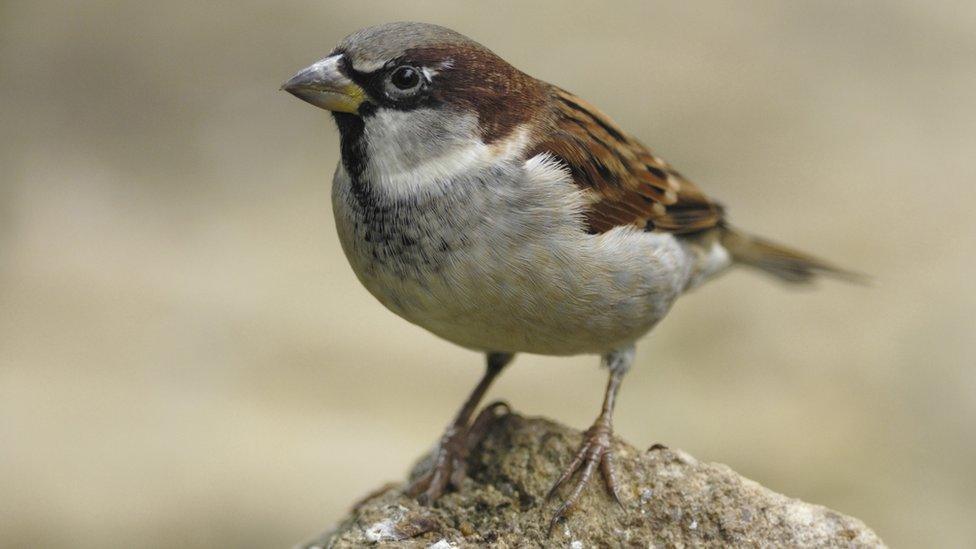
House sparrows saw massive declines between 1977 and 2008
But sightings of two of the UK's most recognisable birds, blackbirds and robins, fell.
Over the years, the survey has documented the boom in sightings of wood pigeons and long tailed tits, as well as influxes of bramblings and waxwings.
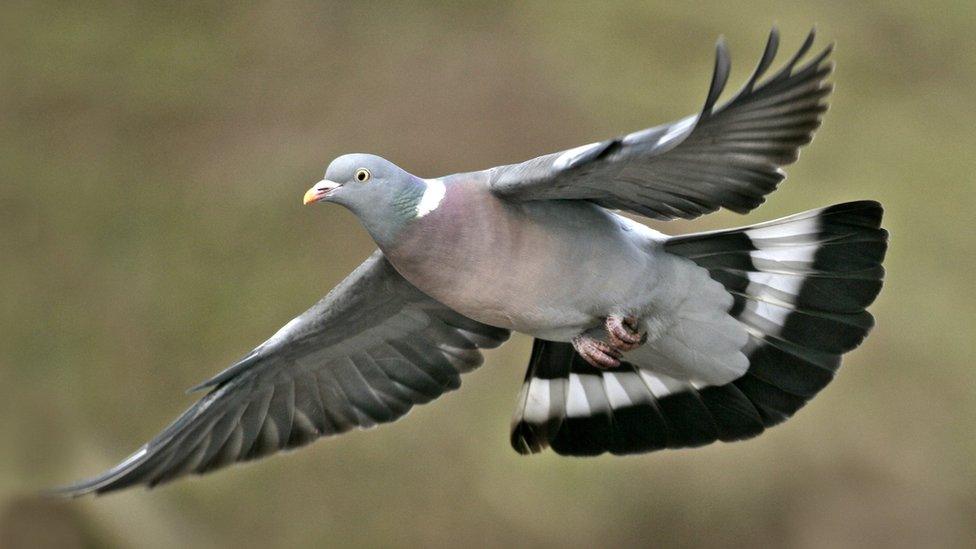
The woodpigeon is the UK's largest and most common pigeon
How to take part
Choose a good spot. This could be your back garden, a local park, or any green space. The RSPB advises grabbing a hot drink and some snacks and getting ready to count
Watch the birds and other wildlife for one hour. Only count the birds that land, not those flying over. There's a counting tool on the RSPB website, external to help keep track of your sightings
If you're not sure what you've just seen, you can find out using their identification tool, external
Only count the maximum number of each species you see at any one time. So if you see three blue tits, but later two, and then another one, the number to submit is three. That way, you avoid counting the same bird twice
Go to the Big Garden Birdwatch page, external and tell the RSPB what you've seen

Beware 'invasive ring-necked parakeets'
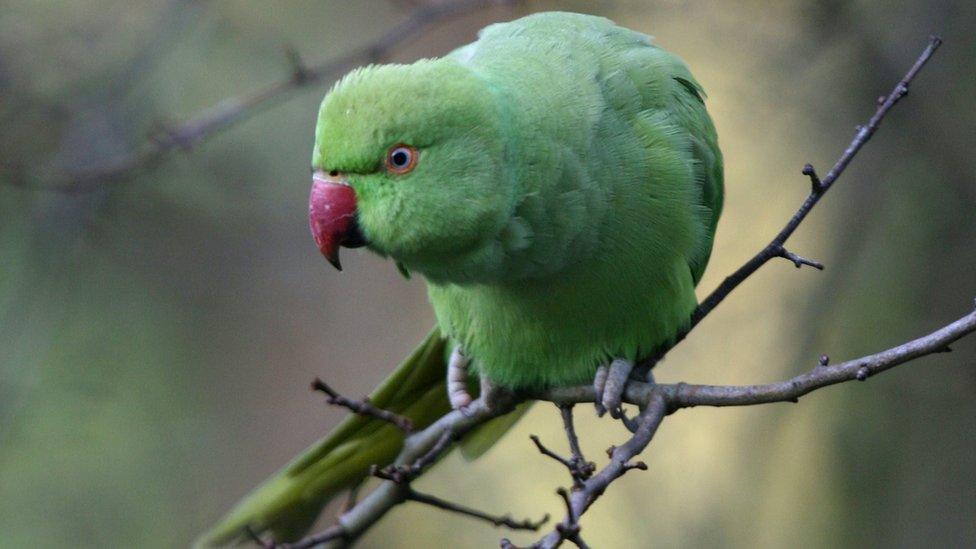
Despite their appearance, some may be less pleased to spot ring-necked parakeets in their garden.
The parakeets are the UK's only naturalised parrot and are often found in flocks, numbering hundreds at a roost site.
The tropical birds have managed to thrive in the UK - it's thought they were originally unwanted or escaped pets - and have been breeding for the last 40 years.
They are mainly found in Greater London, but the species has been recorded in almost every county in England, and has reached Wales and the Scottish borders.
However, they're very noisy, and the worry is that, as their numbers increase, they may become a problem for native fauna and fruit growers.
Allow Instagram content?
This article contains content provided by Instagram. We ask for your permission before anything is loaded, as they may be using cookies and other technologies. You may want to read Meta’s Instagram cookie policy, external and privacy policy, external before accepting. To view this content choose ‘accept and continue’.
- Published14 January 2019
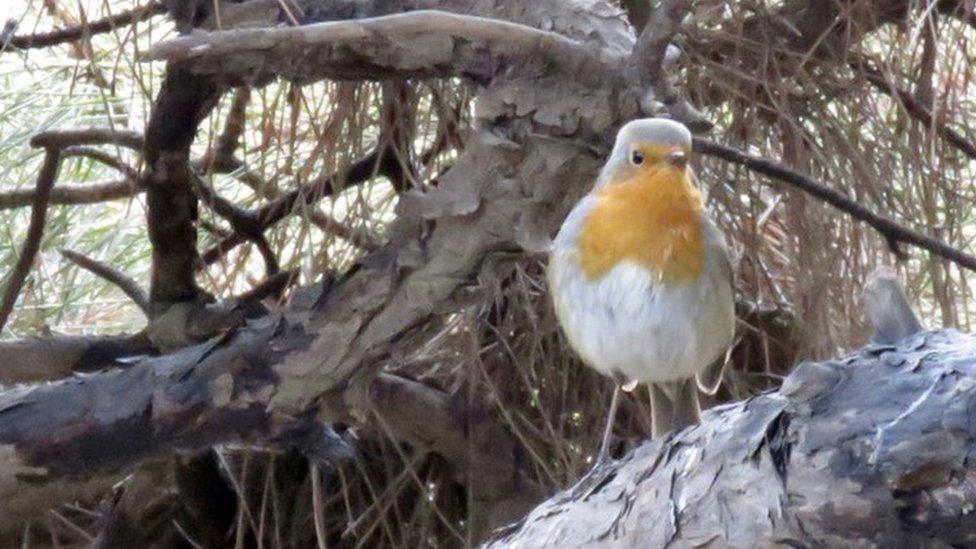
- Published21 January 2019
